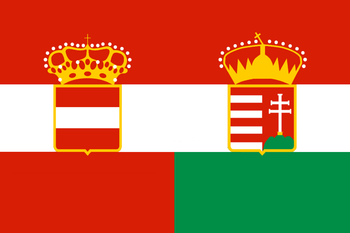Great Britain and Ireland

Now with the Atlantic dividing them from the British exiles and little desire to involve themselves with the Syndicalist Union of Britain, Ireland and Sinn Féin sought greater alignment with the German Empire. Access to Mitteleuropa and the German markets led to tremendous prosperity, but religious and cultural differences between the Ulster counties and the rest of the island have only been smothered, not extinguished. Catholic resentment over the Ulster Privileges continues to grow amid pushes to abolish them and extend equal law across all the isle, while Northern Ireland's protestant majority, completely isolated from other external support, grow increasingly paranoid that their legal and religious protections will be wiped out and they will become second-class citizens on their own island.
As 1936 rolls around, Ireland gears up for the most hotly-contested parliamentary election since unification as parties argue for greater ties to foreign powers or greater isolationism, and Catholics and Protestant groups clash to a more frequent and violent extent. And in the shadow of a Second Weltkrieg, Germany and the Union of Britain turn their gaze on Ireland. Sitting as it does on Britain's doorstep in immensely strategic territory, both nations seek to pull Ireland into their sphere, and after just two decades of freedom, the emerald isle may might themselves trading one master for another in the coming years.
- Better the Devil You Know: Invoked Trope by the focus leading Ireland to align with the Entente, and so with its former British overlords in exile in Canada.
- Democracy Is Bad: The Aontas Náisiúnta is disdainful of democracy and all of its paths will result in some form of authoritarianism.
- Enemy Mine: Despite the historical enmity between Ireland and Britain, Ireland might choose to side with the exiled British government against their common enemy, the Union of Britain, in exchange for the UK recognising Ireland's independence.
- The Federation: In order to appease the Protestant unionists in the Six Counties, Ireland can reform into a federation, with a parliament for each of the island's historic provinces.
- I Can Rule Alone: After the Aontas Náisiúnta takes power, the division between its two factions, Old Guard (formerly Parliamentarians, represented by President Eoin O'Duffy) and New Guard (formerly Abstentionists, represented by Príomh Áire Gearóid Ó Cuinneagáin), comes to the fore. If the Old Guard wins, O'Duffy successfully solidifies his rule and purges Ó Cuinneagáin; if the New Guard wins, Ó Cuinneagáin wrests the control of the party and country from O'Duffy.
- Mini-Game:
- In the “Ulster Comes First” minigame, Collins has six months to manage the recovery from Black Monday as the UDP asks for the northeast to be privileged while the country at large wants an even distribution of efforts.
- The Gateway to the Atlantic mechanic represents a diplomatic tug-of-war between the German Empire and the Union of Britain, with Ireland in the middle. Starting from August 1936, for 18 months, Ireland will attempt to balance the influence of the Germans and the British, who both want to prevent the other from gaining control over Ireland's political, economic and military institutions, allowing Ireland to negotiate business opportunities and trade deals with Germany or Britain for the benefit of the Irish economy. If Ireland manages to balance German and British influences, nothing happens; otherwise, the existing Irish government will be overthrown by one friendly to the winner of the mechanic.
- Multiple Endings: Ireland is a multi-party democracy capable of following the full gamut of the political spectrum.
- Occupiers Out of Our Country:
- In this timeline the Sinn Féin and their Irish Republican Army successfully won the independence of most of Ireland through force of arms.
- Should the AN government fail to pacify the Loyalists of Ulster, they will start an armed uprising to separate themselves from Ireland.
- Annexing Ireland as the Union of Britain or United Kingdom gives some harsh modifiers and recurring events to represent Irish resistance. Ireland can also have to deal with an Ulster unionist uprising backed by the resurgent United Kingdom.
- Regime Change: If either Britain or Germany wins the Gateway of the Atlantic, the IRA successfully overthrows the unstable government; if Germany won, it has the choice to create a new bourgeois government, while if the Union of Britain won, the army will itself be overthrown by a socialist revolution. In both cases, the new Irish government is treated as a puppet of Germany or Britain, but can later prove its legitimacy and become an independent member of the Reichspakt or Third Internationale.
- Revolving Door Revolution: A British victory in the Gateway to the Atlantic tug-of-war with Germany results in the IRA overthrowing the incumbent government, only to find itself removed by a socialist revolution.
- Secret Level:
- Ireland has the ability to join Japan's Co-Prosperity Sphere if it manages to remain independent and democratic while Germany is defeated and the Pacific States of America joined the Sphere and guarantee Ireland. Joining the Sphere unlocks a hidden part of Ireland's focus tree.
- Ireland may also join Russia's Moscow Accord if both nations are authoritarian, Germany is defeated and the Second American Civil War is over. Joining the Moscow Accord unlocks a hidden part of Ireland's focus tree, and if Ireland is a kingdom and Russia under Savinkov then Ó Cuinneagáin will overthow the monarchy and proclaim himself Ceannaire.
- If National Populist Ireland takes the two states of Lanark and Scottish Highlands, puppets Scotland, Wales and Brittany, it will be able to form the Celtic Confederation as a faction.
- State Sec: The Aontas Náisiúnta possesses a paramilitary arm known as the National Guard but colloquially known as the Blueshirts, in which the abstentionist wing of the party holds disproportionate influence.
- Timed Mission: A non-centrist Ireland will receive timed missions representing the growing outrage of the loyalists in Ulster. If this fails, Northern Ireland will revolt—Dublin then has 150 days to take Belfast before the loyalists could secure independence.
Michael Collins
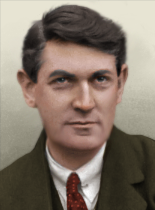
- Alas, Poor Villain: Despite not liking the British monarchy for obvious reasons, he will give a solemn speech mourning King George V's death, noting the king's desires for reconciliation.
- Rebel Leader: During the Irish War of Independence, he led the Irish Republican Army against the British.
- Well-Intentioned Extremist: Collins' authoritarianism comes from his desire to protect Ireland from foreign powers seeking to turn the country into a puppet for their own designs.
Richard Mulcahy

- Action Politician: Mulcahy is a field marshal and remains one even if he becomes president.
- A Lighter Shade of Grey: While Mulcahy's rule is not so different from Collins', one key difference is that Mulcahy can liberalize his regime, represented in-game by switching to Market Liberalism, while Collins will never do so.
- Meet the New Boss: If Collins resigns in favor of Mulcahy leading the party for the 1937 election, he will have very similar policies.
William O'Brien

- Puppet King: In the rare case that Ireland finds itself in a Labour-CnaT-PLP coalition at the time of Britain’s victory in the Gateway to the Atlantic, the syndicalists in his coalition will take over the government, leaving O'Brien as a powerless figurehead.
- Red Scare: O'Brien, a consummate moderate, previously ejected party members under suspicion of syndicalist links, an action causing several younger radicals to leave the party out of protest, forming the Progressive Labour Party.
Éamon de Valera

- Defector from Decadence: De Valera was leader of Sinn Féin during the War of Independence, prior to his capture by British forces. He left the party shortly after independence over disagreement in its direction and leadership, and considers Collins his personal rival.
Seán Lemass

- Defector from Decadence: Lemass left Sinn Féin to found the NDP after he became disillusioned with Collins due to his authoritarianism.
Micheal Donnellan

- Defector from Decadence: Micheal Donnellan split from Sinn Féin and founded the Clann na Talmhan in response to disillusionment against the more urban-focused Sinn Féin government.
Owen Sheehy-Skeffington

- Chummy Commies: The PLP is a pacifist socialist party that seeks the abolition of death penalty, the end of censorship, the protection of freedom of speech and women's rights through reform.
- Internal Reformist: The PLP is a socialist party that can be elected in bourgeois general elections and seeks to attain socialism through reform due to its pacifism.
- Pacifist: The core of the PLP is pacifist and under them Ireland will not join the Third International unless it has defeated the German Empire.
- Young and in Charge: Sheehy-Skeffington is 27 at game start and around 32 when he can take power, making him significantly younger than the other possible leaders of Ireland.
Eoin O'Duffy

- Action Politician: O'Duffy is a field marshal and remains one even if he becomes president.
- The Coup: If SC are elected and make too many allowances towards elements within the NDP, or Labour are elected and adopt unaltered, radical policies proposed by the PLP, then O'Duffy will launch the March on Dublin to depose the ruling government.
- The Fundamentalist: O'Duffy is a Catholic nationalist who would make it as difficult as possible for non-Catholics to participate in public life, if he doesn't just enact discriminatory policies.
- Hoist by His Own Petard: O'Duffy makes Ó Cuinneagáin his Príomh Aire simply to placate him but this might result in the latter wrestling power from the former.
- Regime Change: If Germany wins the diplomatic tug-of-war with the Union of Britain, it will support a coup by O'Duffy to turn Ireland into its puppet state.
- Renegade Splinter Faction: The Aontas Náisiúnta is a radical split from Sinn Féin by refusing the initial partition of Ireland and later the Ulster Privileges accords.
- Tyrant Takes the Helm: Despite participating in parliamentary politics, O'Duffy and the parliamentarian wing are no less anti-democratic than the abstentionist wing of the AN. After the March on Dublin, O'Duffy will crack down on all opposition and work towards a militarized, corporatist dictatorship he rules over by decree.
- You Have Outlived Your Usefulness: After O'Duffy wins the power struggle, he will remove Ó Cuinneagáin from the premiership.
Gearóid Ó Cuinneagáin

- The Coup: Ó Cuinneagáin will make one against the king he installed in Ireland if he forms an alliance with Savinkov's Russia due to the monarchy quickly becoming unpopular and therefore useless to him.
- Evil Reactionary: Ó Cuinneagáin is an autocrat inspired by Charles Maurras' integralism and wishes to bring the country back to a time where the Irish language and Gaelic culture reigned supreme on the island, before imported ideologies like republicanism existed.
- Kangaroo Court: To get rid of Eoin O'Duffy, Ó Cuinneagáin has gay couple Micheál Mac Liammóir and Hilton Edwards arrested and told that they would be tried for being sodomites and British spies if they did not testify that O'Duffy made sexual advances towards them. With their testimony, after a swift court case O'Duffy is convicted of sodomy and treason against the Irish nation, and sentenced to death by firing squad.
- Malicious Misnaming: Ó Cuinneagáin brands his rival O'Duffy with the derogatory nickname O'Scruffy, a doddering drunkard who lacks the spine to adequately stamp out the Irish nation's enemies.
- Naturalized Name: In dropping English as a co-official language of Ireland, Ó Cuinneagáin will impose the complete Gaelification of personal names (as he did with his own before game start), and making Irish toponyms the sole official ones.
- Patriotic Fervor: Ó Cuinneagáin's faction could be described as Gaelic nationalists (in contrast to the Catholic nationalist O'Duffy), seeking to revive Irish culture, including the endangered Irish language.
- The Purge: After taking power Ó Cuinneagáin will enact a brutal purge of the party and military, O'Duffy being among the dead or "disappeared".
- Regent for Life: Due to his own autocratic tendencies, Ó Cuinneagáin has the choice to not crown a King, instead declaring a regency with himself at its head as Ceannaire (Leader) of Ireland.
- Suddenly Significant City: Due to Dublin's status as the stronghold of English imperial control in Ireland and reputation as a hive of Anglophiles, Ó Cuinneagáin seeks to move the capital to a more worthy place. The choice is made to be Baile Átha Luain (Athlone), a town at the very centre of the island; a proposal to build a new city around the Hill of Tara is rejected due to the stretched resources and a desire by traditionalists to not desecrate the sacred hill with urbanisation.
Aodh Ó Néill

- Government in Exile: If overthrown by Ó Cuinneagáin, Aodh will proclaim himself the king of Ireland in exile but will receive little support due to having never been more than a puppet now useless to its master.
- Meaningful Rename: Instead of using the Irish version of his native Portuguese name (Seoirse Máire Ó Néill), Jorge Maria O'Neill will take the name of his distant ancestor Aodh (Anglicised as Hugo) as his regnal name.
- Rightful King Returns: Ó Cuinneagáin can restore the Irish monarchy under Jorge Maria O'Neill, a Portuguese aristocrat and distant descendant of 16-17th century Irish rebel leader Aodh Ó Néill.
- You Have Outlived Your Usefulness: If the Kingdom of Ireland joins National Populist Russia's faction, Ó Cuinneagáin will remove Aodh in a coup and proclaim himself Ceannaire due to the monarchism drastically losing its appeal and with it its usefulness.
John J. O'Kelly

- A Lighter Shade of Black: O'Kelly is the most moderate of the three possible leaders of the AN and the only one who will re-establish a semblance of democracy in Ireland. However he also remains a hardline Catholic and Gaelic revivalist with a disdain for democrats, liberals, Protestants, syndicalists, freemasons and Jews.
Peadar O'Donnell

- Commie Nazis: The Saor Éire's ideology is extremist Irish nationalism, influenced by foreign left-wing nationalist movements.
- The Dictatorship: The Irish Totalists under Peadar O'Donnell are totalitarian and their platform revolves around the Red Trinity, a proposed merger of trade union, army and party into a single totalitarian authority with supreme control over the people of Ireland.
- State Sec: Saor Éire is associated with the paramilitary Irish Citizen Army, which is the reason why they are the one among Irish socialists to take power during the British-backed Second Irish Revolution.
Jim Larkin

- The Exile: Larkin fled Ireland, narrowly escaping imprisonment, when the Irish government launched a crackdown on socialists when the 1925 British Revolution happened. He has been studying at the Sorbonne in France ever since.
Ernie O'Malley

- Rebel Leader: O'Malley was a leader of the IRA during the War of Independence.
Kathleen Clarke

- Breaking the Glass Ceiling: Clarke can become the first female President of Ireland.
Douglas Hyde

- Allohistorical Allusion: Douglas Hyde is the OTL first President of Ireland. In Kaiserreich, he can become the first President of Ireland after the position is made ceremonial.

- Better the Devil You Know: During the 1926 British Revolution, when rumour had it that the syndicalist revolutionaries were planning to cross the Irish Sea from Liverpool to Belfast, the Ulster unionists chose the enemy they knew, joining the Republic of Ireland instead of risking being wiped out. In exchange, the Republic would honour a series of Ulster Privileges: the county councils of the Six Counties enjoy special autonomy, Unionists are given guaranteed seats on the President's Council of State, the electoral boundaries within the Six Counties cannot be changed, and a Minister for Ulster Affairs was created.
- Foreign Ruling Class: Around two thirds of the Six Counties' population consists of Protestant settlers from Great Britain, who built their state on the foundations of their perceived supremacy over the native Irish Catholics of Ulster. Though this idea has been slowly dying since Ireland was reunified in 1926, intentional discrimination against the Catholic minority will immediately resume if Northern Ireland achieves independence.
- Occupiers Out of Our Country: Should a non-centrist Irish government fail to pacify the Ulster unionists, they will start an armed uprising to secede from Ireland.
- Satellite Character: Northern Ireland is an unplayable country whose role is defined by their relationship to the Republic of Ireland and the British crown.
- Teeth-Clenched Teamwork: Although the predominantly conservative and monarchist unionists in the Six Counties have no love for the Republic of Ireland and would rather serve the Crown, the fall of the United Kingdom and exile of the Royal Family to Canada mean that they have no choice but to live under Irish rule for the time being, for they hate the syndicalists even moreso than the Irish. If a non-centrist Irish government mismanages its relations with the unionists, it might have to deal with an uprising.
- Voluntary Vassal: Northern Ireland will immediately place itself under Canadian rule after gaining independence from Ireland or right after breaking away if it is syndicalist.

Within weeks, revolutionary militia took over the isle and forced the British elite to flee to Canada. The Trade Union Congress (TUC) took over all political authority and declared the Union of Britain. The new syndicalist nation joined the Commune of France and the Socialist Republic of Italy to form the Third Internationale.
- Balkanize Me: Upon its defeat by other countries, they will have the option to balkanize Great Britain, releasing Scotland, Wales and Northumbria as puppets.
- Fun with Acronyms: The Union of Britain can found the Revolutionary Exportation Directory (R.E.D.), a revolutionary spy agency that works to support revolutionaries around the world.
- Spark of the Rebellion: In 1925, a miner strike exploded into a total syndicalist revolution when the strike was violently crushed, eventually leading to the fall of the United Kingdom and formation of the Union of Britain.
- Schmuck Bait: Invading Ireland gives the option to decide that "Ireland must be directly ruled from London!" Not only do you get the debuff from occupation normally, you get a national spirit that reduces political power gain and increased consumer good factories because the Irish Republican Army and royalist Ulster Volunteer Force have both risen against you.
- Weird Trade Union: The ruling body is the Trade Unions Congress, which is for all purpose and intents the former parliament with districts replaced by trade unions.
Tom Mann

Thomas Mann was the first and is the current General Secretary of the Trade Unions Congress of the Union of Britain, and member of the Federationist wing inside the TUC.
- Neutrality Backlash: Mann's neutrality did prevent escalations of conflicts in the TUC, but it also allowed Mosley's Maximists to rise up.
- Passing the Torch: Chairman Arthur Cook anointed Mann his successor, allowing him to be voted new Chairman decisively.
- Workaholic: Mann is noted to be workaholic in his in-game biography.
Oswald Mosley

Oswald Mosley began his political career as a Conservative who later became a member of the Labour Party. During the British Revolution, he became famous for his organization of the worker's uprising in Birmingham. After the revolution, Mosley founded the Maximist faction, which sets a purpose of enacting of the large-scale centralization of the state and militarization in the face of the foreign counterrevolutionary threat. Being the author of the Totalist Charter, Mosley is seen as the key figure of the Totalist ideology.
- All for Nothing: If Mosley is elected to succeed Niclas y Glais after he devolved the Union of Britain, England will re-annex Scotland and Wales a month later, undoing all of Glais' work.
- Big Bad: From both an anti-Syndicalist and moderate Syndicalist perspective, as he is one of the founders of the Totalist manifesto and seeks to override the democratic syndicalist governance of the Union of Britain to usher in a totalitarian government.
- Commie Nazis: His ideology, Totalism, blends Stalinist-esque planned economics and revolutionary ideology with far-right traits such as Nationalism and Revanchism.
- Dirty Communist: Mosley is the author of the Totalist Charter, and creator of the most influential far-left totalitarian ideology in the world.
- Dystopia Is Hard: Seeking to enforce Totalism on the Union of Britain can lead to other Syndicalists such as Eric Blair turning against him, and could result in a military coup against his faction.
- Emergency Authority: One way for Mosley to accomplish his Maximist Revolution is to declare martial law.
- Evil Cripple: Mosley suffered a flying accident during the Weltkrieg, and walks with a limp.
- Historical Villain Upgrade: The real Mosley, despite his infamous reputation as the leader of British fascists, didn't hold serious political influence, and just followed the example of Mussolini's fascism. Here, he is not only a potential totalitarian leader of Britain, but also the creator of the most influential far-left totalitarian ideology in the world.
- Pragmatic Villainy: Instead of taking the very unpopular decision to appoint himself Chairman-for-Life, Mosley can keep a facade of syndicalist democracy by appointing Eric Blair as his General Secretary.
- President for Life: If Mosley is successful in his Maximist Revolution he will become Chairman for life as Grand Protector but will only make it official after winning the post-Second Weltkrieg election.
- The Purge: One way to accomplish the Maximist Revolution for Mosley is to arrest all the leaders of the opposition. It may fail if some manage to escape.
- Smug Snake: For all his insistence that he's the strong leader the Union needs, Mosley's ploy to become dictator can go wrong in any number of ways, if it works at all.
- Tyrant Takes the Helm: Upon taking power, Mosley can (unconstitutionally) declare himself the permanent Grand Protector, uniting the powers of General Secretary and Chairman. He then strengthens his position, eliminating any possible opposition to his tyrannical rule, which is implied to be as Orwellian as possible, although certainly not cut off from the outside world.
Sylvia Pankhurst

A prominent Congregationist leader favoring the continuation of the orthodox syndicalist Union of Britain under the Trade Union Congress.
- Breaking the Glass Ceiling: If elected, the news event specifically mentions that she's one of the very few female heads of state in the entire world, and the first of the Union of Britain.
Ellen Wilkinson

- Breaking the Glass Ceiling: Under the conditions of becoming Chairwoman after challenging Chairman Horner and Sylvia Pankhurst never being elected, Wilkinson would become the first female leader of the Union of Britain.
Arthur Horner

- Cincinnatus: If the military prevents Mosley's Maximist Revolution by staging a coup, they will install Horner as Interim Chairman. He may be confirmed in the role or step down at the next election.
Clement Attlee

- Allohistorical Allusion: Attlee, whether it be through the Syndicalists or Royalists, can become leader of Britain after WWII just like OTL.
- Former Regime Personnel: If the United Kingdom is restored, Attlee will become the leader of the acceptable British left and potentially Prime Minister.
- In Spite of a Nail: Attlee can still become prime minister of Great Britain after a world war, even if he previously worked with the defeated syndicalists.
Niclas y Glais

Niclas y Glais, a famous Welsh poet and once a pacifist activist, is the leader of the Autonomist faction who stands for higher autonomy for Scotland and Wales, not excluding the option of full independence of these countries from the Union of Britain.
- Balkanize Me: As a Devolutionist, Niclas favors breaking the Union of Britain into the Unions of England, Scotland, and Wales. Depending on how negotiations go, Scotland and Wales may be either wholly independent, or subservient to England.
- Suddenly Significant City: Niclas y Glais will move the capital of the Union of Britain to Birmingham due to its more central location in England.
Ebenezer Edwards

- Nations as People: Edwards is considered as a typical represention of Syndicalist Britain and is sometimes described as its personification.
John Strachey

- A Lighter Shade of Black: Stratchey is described as a "liberal Maximist" due to being less inclined than his peers to totalitarianism.
Eric Blair

- The Coup: Five months after Mosley declares himself Chairman for Life, Blair will lead a coup against him.
- Defector from Decadence: Blair and the Council of Action are originally Mosleyite sympathizers but they will turn against Mosley should he declare himself Chairman for Life.
- A Lighter Shade of Black: The Council of Action is a body of moderates aligned with the Maximists due to their wish for more centralization while rejecting totalitarianism.

- Emergency Authority: Immediately after the conquest of the Union of Britain, the British Reconstruction Authority is formed and empowered with broad governing powers to oversee the process of rebuilding Britain. After its work is done, the BRA's last act is to return the UK to civilian rule.
- The government can also decide the UK is not ready for democracy yet and continue to rule with a 'guided Parliament'.
- Former Regime Personnel: Soon after the Union of Britain is defeated, many soldiers who once fought for it will seek to re-enlist in the British Army. The UK government is free to accept or refuse.
- In Spite of a Nail: Clement Attlee (if pardoned) and Anthony Eden may become Prime Minister of the United Kingdom like OTL.
- Kangaroo Court: The trials for syndicalist leaders can devolve into this depending on how they're handled, further exasperating efforts at Reconstruction.
- The Leader: Soon after its restoration, the UK will reassume its place as the Entente's leader from Canada.
- The Remnant: Even if the Entente manages to defeat the Union of Britain, a Syndicalist resistance will form in opposition to the new UK government, leeching off public discontent at the choices made by the Reconstruction authority.
- The Resenter: As the British citizens who left the Union of Britain to flee syndicalist rule return home after the UK's restoration, they're subject to resentment from those who stayed, for having been 'untouched by war and poverty'.
- Resurgent Empire: After Reconstruction is finished, the United Kingdom will focus on getting its more immediately prized possessions, namely Ulster, Gibraltar, the Falklands, Malta and its Caribbean islands, all of which had been under direct rule not more than 30 years ago. After that, the question of going on a quest to restore the full extent of the Empire will be done, but perhaps times have moved on from such things.
- Rightful King Returns: When the UK is restored, the incumbent King will return from the Dominion of Canada to London, there to be crowned in a ceremony at Westminster Abbey, attended by monarchists across Britain.
- Won the War, Lost the Peace: It's the British Reconstruction Authority's duty to ensure that this doesn't happen. Should it happen, the UK faces an uncertain future as elections are suspended for another decade.
George V

Edward VIII

Prince Albert/Albert I

Prince Henry/Henry IX

Prince George/George VI

Charles III

- Naturalized Name: Carl-Eduard of Saxe-Coburg and Gotha will take the english version of his name, Charles, as his regnal name.
Western Europe

Though the new France had to comply with territorial and economical losses from the Weltkrieg, it poses itself as the leader of the new Socialist world, and the strongest opponent to the Imperialist Pax Germanica. Slowly recovering from scars of the past, the Commune now prepares for a future conflict with the Kaiserreich, a war that will reshape the fate of France, Europe, and the World.
- Allohistorical Allusion: The flag of the French Social Republic includes a symbol reminiscent of the RNP, Déat's OTL collaborationist party.
- Arch-Enemy:
- To the German Empire, as the strongest representatives of their opposing ideologies (Syndicalism and Capitalism), as well as the main contenders for hegemony in Europe.
- And, of course, to National France, since the very existence of one of these states is a challenge to the legitimacy of the other.
- Commie Land: Being the birthplace of the Syndicalist Revolution and the leading country of the Third Internationale, the Commune of France carries the torch of the Syndicalist Revolution worldwide.
- Eagle Squadron: France is home to many socialist exiles enrolled in its armed forces, hoping to one day liberate their homeland from capitalism.
- Evil Versus Evil: Though the Jacobins and the Sorelians are both authoritarian factions, they have very different and mutually incompatible views on what "advancing the Revolution" means in practice. If one faction manages to take full control of the Commune, the other will inevitably be purged.
- Internal Reformist: While the other parties want to radically change the governance of the Commune of France, the reigning Orthodoxes wish to maintain orthodox syndicalism and use the existing governmental structure to rejuvenate the economy in more or less its current form.
- Martial Pacifist: After what France and her allies suffered in the Weltkrieg and the heavy anti-militarist sentiment of its people, the Commune is in no mood to rush into another meatgrinder of a war headfirst. That said, most French citizens would gladly lay down their lives to protect the revolution they fought long and hard for.
- "Shaggy Dog" Story: If no parties reach a majority in the 1936 Communard elections, the current Orthodox – Anarchist pact will continue with Marceau Pivert, whose unpopularity and resignation caused such tense elections in first place, staying in his office.
- Tank Goodness: The Orthodoxes' military philosophy is based heavily around armored and otherwise mobile warfare, in contrast to the other parties, which all support some manner of infantry-centric warfare.
Pierre Monatte

- The Exile: Monatte was briefly forced into exile before the First Weltkrieg.
Maurice Gamelin

- Cincinnatus: After his coup, Gamelin will remain in power only until the 1941 election decides a new Chairman.
- Military Coup: If the Jacobins are elected and decide to abolish the syndicalist democratic system, Field Marshal Maurice Gamelin may launch a coup to depose them and restore the Orthodoxes as the ruling party of the Commune, with himself at the helm.
- The Purge: While not part of normal Orthodoxes politics, if Gamelin deposes the Jacobins, he reinstates the Orthodoxes and the entire Jacobin party is purged.
Nestor Makhno

- Four-Star Badass: No matter what one might think of Nestor Makhno's politics, the guy has undeniable badass credentials and is defintely no paperpusher or pushover of any sort. Exactly like his real life counterpart, Makhno was the leader of the Anarchist Black Army during the Russian Civil War, where he was a Frontline General who fought on the ground with his men (and got seriously wounded at several instances as a result), often against overwhelming odds as both the White and, occasionally, the Red Army wanted him and his Anarchist fighters crushed, and still was often able to snatch victory from the jaws of defeat time and time again. His feats in Kaisrreich are arguably even more legendary as he lead a seemingly outgunned and outmanned Black Army to victory against the German defenders at Kraków and even managed to capture and occupy the city for a while.
- Good Scars, Evil Scars: Nestor Makhno sports a gnarly dueling scar, though whether you see it as a good scar or an evil scar likely depends a lot on your own views on him and his politics. In general, from the Entente, Reichspakt, and Russia's point of view, it's an evil scar born by a dangerous ideologue who tried to cast Ukraine into chaos and is trying to do the same with western Europe, while from the Third Internationale's point of view, it's a good scar and a reminder of his personal efforts and sacrifices to try to liberate the workers and peasants of Ukraine and his commitment to liberating Europe's working class.
Conseil de Défense Fédéralnote

- Anarchy Is Chaos: Averted — neither putting the Anarchists in power nor the rule thereof is significantly more punishing on national stability than electing either totalist party or keeping the Orthodoxes in power, and in general, the society they build is just as stable as any other.
- Developer's Foresight: The flag in the background of the portrait changes depending on whether the Tricolour was kept, the Rogue flag was chosen, or they decided to compromise (either by event or in the country paths).
- We Have Reserves: The Anarchists' war philosophy, inspired by the massive scale of the Weltkrieg and a belief that any future war would require even greater numbers of men under arms, is centered around vast militia armies armed with vast numbers of cheap rifles, rather than the tank armies favored by the Orthodoxes, the centralized army command favored by the Jacobins, or the squad-centric army favored by the Sorelians.
Marcel Déat

- Dirty Communists: The Jacobins are authoritarian technocrats seeking to abolish the syndicalist system and bring about a 'Technician State'.
- Kangaroo Court: The Paris Trial of the Front Populaire opposition.
- The Plan: Jacobin military doctrine emphasizes extensive planning by a centralized high command above individual initiative, mass conscription, or vast armored forces.
- The Purge: The Jacobins will purge the rival Sorelians if they take power and can do the same to the Front Populaire opposition (and needs to if it wants a avoid a military coup).
Georges Valois

- Commie Nazis: As a charter-affiliated Totalist party, their ideology combines Stalinist-esque policies with revanchism against Germany and a dose of anti-semitism.
- Elite Army: Sorelian military doctrine is centered around empowered junior officers and superior capabilities at the squad level, and as such, they get a general bonus to infantry capabilities.
- The Purge: Launches one against the Jacobins if they take power.
- Revenge: Their foreign policy is the one that most revolves around seeking vengeance against the Germans for causing France's defeat in the Weltkrieg.
- Warhawk: The Sorelians are the most aggressive socialists out there, and seek militarist and revanchist policies for everything.
Fedor von Bock

- Foreign Ruling Class: After becoming a German puppet state, France will be ruled by a German occupation administration.
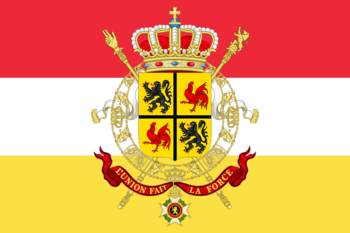
In 1936, the buffer state of Flandern-Wallonien is coming to a boiling point, between the Flemish population, wanting to join the neutral Netherlands, the Walloon population, whose nationalism turned to French-fashioned syndicalist views, and the whole population, tired of German domination...
- Civil War: Sometimes the people from Flanders-Wallonia can try to free themselves from the German yoke in the Second Belgian Revolution. Usually it is a Curb-Stomp Battle, but it can be a great opportunity for the Commune of France if they are invading.
- Divided We Fall: The main reason for Germany to form Flanders-Wallonia as a federal unit instead of separating Wallonia from Flanders, since it provides a strong buffer state between France and Germany.
- Puppet State: While the Reichspakt is formed by German puppets, Flanders-Wallonia is one of the most heavily German controlled countries among them.
- We ARE Struggling Together: Both Flanders and Wallonia deeply hate the German occupiers and both groups can unite to attempt a Second Belgian Revolution. However, Wallonia believes that Flanders is collaborating with the German Empire while Flanders is afraid of the rising power of the syndicalist resistance and constantly struggles to maintain the small scraps of power that it holds.
Adalbert I

- Abdicate the Throne: When the Belgian rebellion approaches Brussels, Adalbert can sign a formal ceasefire treaty, resulting in his immediate abdication, the withdrawal of all German forces from Flanders-Wallonia and a truce between the reborn nation of Belgium and the German Empire.
Albert I

- Government in Exile: After Belgium was defeated in the Weltkrieg and replaced by the Kingdom of Flanders-Wallonia, King Albert went to exile. He lived in Britain for a short time, before the syndicalist revolution forced him to follow the British royal family to Canada.
- Rightful King Returns: After the German pretender Adalbert is ousted, the royalist faction of the Belgian government can choose to bring King Albert back home and return him to the throne.

- Allohistorical Allusion: Marinus van der Lubbe still becomes known for setting on fire a parliament building and by doing so setting off a dramatic chain of events. But instead of burning the German Reichstag, he burns the Binnenhof, starting a chain of event potentially leading to the despotic VNH or the Totalists to take power (but the event will be set off only if the government is SocCon or further right).
- Red Scare:
- A government including the VNH will launch a Red Scare campaign for every socialist and social democratic unions, organizations and parties in the Netherlands, destroying any chances for them to come to power through elections.
- If the CNA forms a government without any alliance, it will launch a crackdown on all socialist organizations, dissolving them one by one.
Wilhelmina

- Abdicate the Throne: Wilhelmina can abdicate the throne and if she does can be replaced by new queen Juliana or a republic.
- If the SDAP attempts to form a government with the more radical RSAP, the queen will demand they instead form a one with the liberal VDB where the latter would take the lead. She will abdicate if her demands are rejected.
- She will abdicate if the RSAP wins the 1938 elections and Rejinders' Putsch is defeated.
- The VNH takes power through the Finsterwolde Conspiracy.
- Breaking the Glass Ceiling: Wilhelmina is the first reigning queen of the Netherlands.
Willem Drees

- Internal Reformist: If the ruling SDAP-RSAP coalition decides against overthrowing the system, it will pursue reforms through parliamentary means.
David Wijnkoop

- The Coup: If the aftermath of the Binnenhof Fire is mishandled by the government, the Patriotten will use the opportunity to take power by force, possibly through a munity in Groningen.
Paul de Groot

- The Coup: If the socialist election leads to no majority, the National Red Front may take power in a coup.
Henri Nicolas Alfred Swart

- The Coup: Swart and his VNH may be brought to power by Rejinders' Putsch or in the aftermath of the Binnenhof Fire by the Finsterwolde Conspiracy (in the latter case it abolishes the monarchy).
- State Sec: The VNH possesses a paramilitary wing called the Landwacht.
- Tyrant Takes the Helm: The VNH is a despotic party that will subvert democracy if it gets into power, intimidating parliament if it decides to rule alone, rigging the next elections if it took power through Rejinders' Putsch and outright making a coup themselves with the Finsterwolde Conspiracy.
Cornelis van Geelkerken

- The Coup: On the Zonderlinge Zaterdag, the extremist faction of the VNH will lead a coup with elements of the paramilitary Landwacht to oust Swart and take power for themselves.
Izaak Herman Rejinders

- Cincinnatus: Rejinders may choose to restore democracy at the end of the Junta's focus tree, or to maintain it.
- Military Coup: Rejinders' Putsch is a military takeover installing a military junta or the authoritarian VNH at the helm of the Netherlands.
- There is a minuscule chance the putsch will fire after the left wins the 1937 elections.
- The putsch will fire if the RSAP wins the 1938 elections.
- The putsch can be triggered by the Binnenhof Fire as part of a state of emergency.
- Regime Change: Rejinders' Putsch benefits from German support.
- Secret Police: Rejinders' junta will establish a secret police.
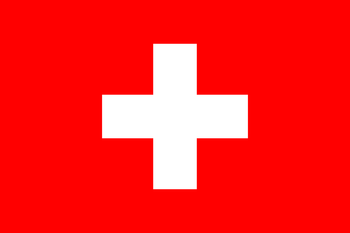
- Neutral No Longer: In the aftermath of the Savoyard Crisis, Switzerland might be forced to renounce its long-time neutrality to either ally with or defend itself from France, Germany, Austria or Italy.
Eugen Bircher

- Kangaroo Court: The Bern Trials are a series of show trials conducted by Bircher's government to get rid of military officers from French- or Italian-speaking regions, or those known to harbour Syndicalist leanings, in order to strengthen the officer corps' loyalty.
- Military Coup: Citing the previous government's failure to both protect the Swiss people in the Romandy and secure foreign assistance, the Schweizerischer Vaterländischer Verband paramilitary can decide that it has failed and Switzerland can only be revitalised by an entirely new government with Bircher at the helm.
- The Purge: Due to his pro-German, anti-syndicalist leanings and personal rivalry with the French-speaking officer Henri Guisan, Bircher can sentence Guisan and several other French-speaking officers to death for the alleged crime of collaborating with the Commune of France.
Iberia

- Civil War: The Spanish political crisis inevitable explodes into a 3-way civil war between the Monarchists, the Socialists, and the Carlists.
- Historical Downgrade: Francisco Franco is just another general in the Monarchist army, and cannot earn any prominence in politics.
- Vestigial Empire: Spain hasn't been in a good shape for more than a hundred years. Three Carlist Wars, a failed Republic, a controversial Restoration, and the loss of the last remnants of Spain's colonial empire to the rising United States left the country to enter the 20th century in humiliation and profound socio-political division.
Alfonso XIII

- You Have Failed Me: With Black Monday supporting him and his conspirators, King Alfonso decides to finally make his move and dismiss Prime Minister Miguel Primo de Rivera.
Emilio Mola Vidal

- The Coup: After Juan de Borbón's assassination, Mola may attempt to dissolve the government with the support of the military.
- Evil Chancellor: Mola becomes this if he maintains a puppet monarchy.
- Red Baron: After taking power Mola becomes known as "El Caudillo".
Jaime I

- Naturalized Name: If Spain under Jaime I conquers France, he will take the name Henri VI as King of France.
- Puppet King: If Jaime is installed as King by Mola, the latter retains real power in Spain.
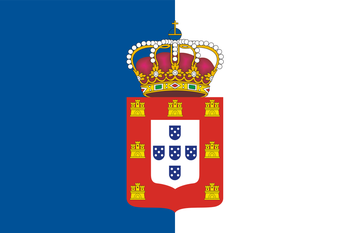
- The Alcatraz: Absolute Monarchy Portugal can create the Tarrafal prison camp
 situated on the Cape Verde islands, intended for the most dangerous Portuguese criminals and syndicalist political prisoners.
situated on the Cape Verde islands, intended for the most dangerous Portuguese criminals and syndicalist political prisoners. - Binding Ancient Treaty: Under AI control, it has a fairly good chance of joining the Entente, choosing to continue to honour the Anglo-Portuguese Alliance
 note by helping the remnants of the British Empire.
note by helping the remnants of the British Empire. - Historical Downgrade: António de Oliveira Salazar still enters politics under the Integralists, but is otherwise just another minister in the government.
- Let No Crisis Go to Waste: Portugal can take advantage of the Mittelafrikan collapse to restore their old African colonies and claims, taking Zambia and Barotseland, demanding control over Kongo, and take over everything between Angola and Mozambique to realize their Pink Map
 claims.
claims. - Patriotic Fervor: Integralist Portugal is a monarchy with far-right patriotism, including things like a patriotic youth league.
Spanish Civil War

- Assassination Attempt: The Carlists may attempt to assassinate the Spanish regent Infante Juan, actions taken by Alfonsite Spain may lessen to nullify their chances of success.
Javier I

- Try to Fit That on a Business Card: King of Castille, León, of Aragon, of Navarre, of Grenada, of Toledo, of Valencia, of Galicia, of Mallorca, of Seville, of Cordóba, of Murcia, of Jaen, of Algeciras, of the Canary Islands, Lord of Biscay and of Molina, etc.
Austria-Hungary
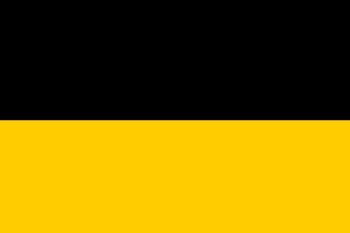
Despite the Empire's victory in the war, the war revealed clear divisions of culture, class and ideology within the Empire, and inner unrest continued on in the post-war. Kaiser Karl, following the footsteps of the assassinated Franz Ferdinand, attempts to reform the multinational empire into a modern federation that can survive the twentieth century, but his plans have faced pushback from the nobility on the Hungarian side of the Empire.
Today the Empire is on the brink, ethnic tensions are on boiling point, negotiations with the many kingdoms of the monarchy will be held in the next Ausgleich, the Hungarians seem eager to break the fragile union, the Balkan countries are moving to remove the influence of Austria in the region, while their puppet Italian Republic is ever rebellious and ever threatened by the Syndicalists. With enemies within and without, the Habsburg domination may be coming to an end.
- Civil War: The Empire is in a very fragile union; the constituent kingdoms can attempt to rebel against Austria if the Ausgleich negotiations go wrong. Hungary seems to do this a lot.
- The Federation:
- One of the most peaceful ways to unite Austria-Hungary and avert its dissolution is to transform the Empire into this. The new federation will hold all the territories the separate constituent kingdoms had, with all industry, military forces and population united under one central government. If the social-conservatives federalize the empire it will be called United States of Greater Austria and if the social-democrats do it the name will be Danubian Federation. However, the Habsburgs will still be in power, meaning it will be both The Federation and Hegemonic Empire.
- Or Austria can just ignore this, send military forces to crush any rebellion and centralize the Empire by force. Austria has to crush Hungary to be able to set up the Danubian Federation/United States of Greater Austria, although it is planned to be possible, with luck, to peaceful federalize once the Hungary focus tree is done.
- Hegemonic Empire:
- As The Sound of Martial Music points out, Austria-Hungary is a union of various nations having no connection to one another except their joint allegiance to the house of Habsburg-Lorraine, a bizarre system straight from feudalism that looks outdated in an era of nationalism and nation-states.
- The Donau-Adriabund, which the Habsburgs could establish, is ostensibly an alliance meant to be a counterweight to Germany's Reichspakt. In practice, however, it also serves as a looser, more modernized form of the Holy Roman Empire.
- Multinational Team: The Habsburg Empire is formed by five different constituent nations and a lot of ethnicities. If there's a war their armies will look like this.
- Obstructive Bureaucrat: The Hungarians (Transleithania) are constantly trying to halt and revert any federalization efforts, as they realized they won't be the second place of the Empire, but only one more state among others while Austria still keeps their leadership.
- Paper Tiger: Austria looks imposing with their starting position, a large territory and a lot of puppets. However, due to its descentralized organization, the constituent countries have their own armies and industries with almost no cohesion between themselves and capitulating Austria can take the entire empire down.
- Resurgent Empire: Should Austria pull through its predicament, the Habsburgs can potentially reemerge as a major regional, if not global power. The Donau-Adriabund could even challenge Germany's Reichspakt as Europe's hegemonic bloc.
- Vestigial Empire: Almost this, the Empire is already very decentralized and ethnic tensions are on its breaking point. The objective of Austria is to prevent this, if not reassert its place in the modern world, either by federalization or by force.
- Video Game Cruelty Punishment: Forcibly centralizing the Empire with military force results in every constituent rebelling against the Empire and locking it into a multi-front war that it is sure to lose without player control, as well as bringing international condemnation regardless of ideology.
Karl I / IV. Károly

- The Emperor: Starts off as the Emperor of the Austro-Hungarian Empire, in a tradition spanning since from 1273, when Rudolf I von Habsburg became the Emperor of the Holy Roman Empire.
- The Good King: Is attempting to establish an Imperial Federation, where all the ethnic groups that compose his Empire are equal. He can also establish a pretty social government for its citizens. He has even been considered for sainthood in real life.

- Good Is Not Soft: To form the Danubian Federation or the United States of Greater Austria, Karl has to take extreme measures and crush the Hungarian nation as they rebel against Vienna's attempts to federalize the country.
- Naturalized Name: The Kaiser of Austria is known as Karl I von Habsburg-Lothringen in Austria, Habsburg-Lotaringiai IV Károly in Hungarynote , Karlo IV in Illyria, Karel III in Bohemia and Karol I in Galicia-Lodomeria.
- Take Up My Sword: Franz Ferdinand wanted to reform into a federation of mostly autonomous states to resolve racial tensions and create a more equal empire, but was tragically assassinated before he could create it. Karl can see his uncle's dream realized.
- Unexpected Successor: Karl never expected to be the emperor of the Austrian Empire, a job that has always been destined for his uncle Franz Ferdinand. However, with his uncle's assassination and the death of his great-uncle Franz Joseph, he had to assume the throne and lead the Empire.
Otto I

- A Child Shall Lead Them: In earlier versions of Kaiserreich, Karl I still died at his original death date, meaning that Otto would have become Kaiser and King of Austria-Hungary just eight months shy of his tenth birthday. Averted in current versions, as he would be in his mid-thirties by the time of his ascension to the throne.
- The Emperor: Succeeds his father as Emperor of Austria and King of Hungary.
- The Good King: As much so, if not more so than his father, considering he is also seeking to federalize the Empire.
- King Bob the Nth: Interestingly, although styled as King Otto of Hungary, he isn't the only King named Otto who ruled in Hungary. However, unlike the current Otto, he styled himself as King Béla V instead. Also of note was that he was baptised as Franz Joseph Otto as Karl was trying to promote the young man as Franz Joseph II, although it didn't stick.
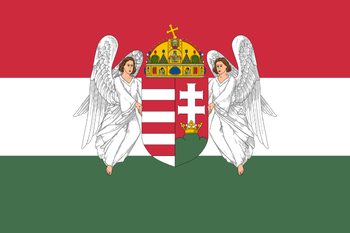
- Civil War: In order to reclaim Transylvania, the Romanian government will start swaying ethnic Romanians in the region to support the approaching Romanian Army. If left unchecked, a substantial uprising will erupt in Transylvania, weakening Hungary before the eventual Romanian invasion.

- Allohistorical Allusion: The formation of Illyria can have some parallels with the formation of Yugoslavia: After the end of the war the winning side decide to create a major Pan-Slavic state under the leadership of a major South Slavic ethnic group. Yugoslavia was created by the Entente giving the Slavic parts of Austria-Hungary to Serbia, while Illyria unites the old South Slavic parts of the Empire plus Montenegro and the Slovene parts of Italy under the Croats.
Stjepan Radić

- Irony: In Real Life, Radić was opposed to a South Slavic Union, yet he is serving as the Kaiser's Governor-General in a country that is loosely the Habsburgs' variation of Yugoslavia. Downplayed mostly because this union would be more Croat-dominated than Serb-dominated, which was the reason of Radić's opposition.

Karol Olbracht von Habsburg-Lotaryński

Karl I's distant cousin, and his representative in Galicia-Lodomeria. He is also one of the potential candidates for the Polish throne.
- Going Native: Karl Albrecht went native as Polish after moving to Galicia and Lodomeria, and because of his support for the Poles in his own lands, he could be offered the throne.
- Naturalized Name: Known in the Austrian Empire by his German name, Karl Albrecht. If he becomes King of Poland, he would be styled by the Polish Karol Olbracht.
- Offered the Crown: Is one of four potential candidates to become King of Poland. Should Karl Albrecht become King, he would entrust governorship of Galicia-Lodomeria to his friend, Józef Haller von Hallenburg. Interesting to note, that Karl Albrecht's father, Karl Stephan, was also a candidate to the Polish throne during the Weltkrieg (as he was as well in Real Life).
Nordic Countries
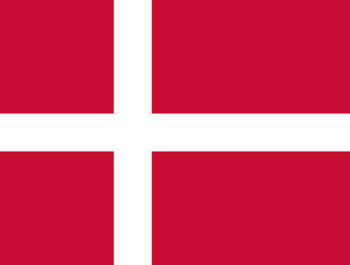
While Denmark profited from the German boom in the 1920s, the Social Liberal Party had to yield to the Social Democrats of the charismatic Thorvald Stauning, who, barring a hiatus between December 1926 and April 1929, served as prime minister consecutively since 1924. Stauning's dream of a Danish welfare state has not be materialised yet however, since the Danish upper house, Landstinget, which has been under the control of the conservatives for all this time, has continued to block any such motions. Many wonder what the future will hold for Denmark: will it find itself practically reduced to a German client state? Or will this tiny Nordic country secure a future for itself as new forces rise to challenge the international establishment?
- In Spite of a Nail: Dependent on choices, the Danish government can still implement the Kanslergade Agreement
 , the name and nature of which is the exact same as a famous political compromise from OTL between the Social Democratic Party and their coalition partner the Social Liberal Party, as well as the main opposition party the Liberal Party that happened in 1933. In real life, the deal is credited as having greatly restored and strengthened the Danish public's trust in parliamentary democracy at a crucial time, and is pointed to as the main reason why far-left and far-right ideologies such as communism and fascism never really managed to secure any kind of broad public appeal in Denmark, even in a time when the rest of Europe was growing increasingly radicalized and polarized.
, the name and nature of which is the exact same as a famous political compromise from OTL between the Social Democratic Party and their coalition partner the Social Liberal Party, as well as the main opposition party the Liberal Party that happened in 1933. In real life, the deal is credited as having greatly restored and strengthened the Danish public's trust in parliamentary democracy at a crucial time, and is pointed to as the main reason why far-left and far-right ideologies such as communism and fascism never really managed to secure any kind of broad public appeal in Denmark, even in a time when the rest of Europe was growing increasingly radicalized and polarized.

- Quantity Versus Quality: In order to modernise its army, Norway can choose to follow the plan of either Carl Gustav Fleischer, who proposes a small, well-armed, well trained professional army, familiar with Norway's conditions, or Otto Ruge, who favours mass mobilisation.
Haakon VII

- Allohistorical Allusion: Haakon has declared that he is also the king of the syndicalists, like how his real life counterpart said "I am also the King of the Communists".
Vidkun Quisling

- Historical Villain Downgrade: While Quisling in Kaiserreich is as sympathetic to far-right ideologies as in OTL, he would never sell out Norway to a foreign power, especially not Germany.
- Military Coup: If the Labour Party is elected in 1936 and does not outlaw the paramilitary Samfundsvernet, they'll help Quisling overthrow the government after a couple of days.
- State Sec: If Quisling's Nasjonal Samling comes into power, they'll consolidate power by forming their own paramilitary and private navy to replace Norway's old armed forces.
- Tyrant Takes the Helm: When Quisling seizes power, Parliament will pass a law granting him the power to enact laws, before he indefinitely suspends Parliament.
Elias Volan

- Historical Hero Upgrade: Volan was an active trade unionist OTL and worked actively with the Norwegian Labor Party, while instead in Kaiserreich he has the opportunity to help the workers even more and be the leader of Norway should the party congress pick him after the revolution
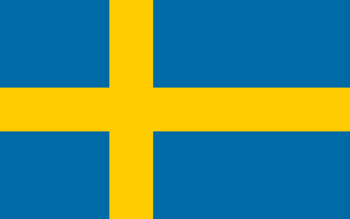
This may change however as Lindman retired two years ago. This year, the new leader Gösta Bagge, who also succeeded Lindman as prime minister, will lead his first elections. Will he too be able to fend off his nemesis on the opposition, Per Albin Hansson?
Nils Flyg

- Historical Villain Upgrade: while in OTL Flyg was a minor politician who advocated collaborating with the Nazis, he can become dictator of Sweden.
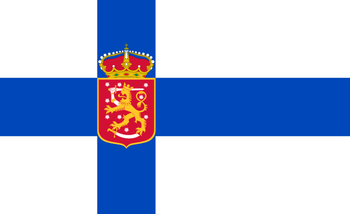
It wasn’t long before a civil war broke out between Red Finland, which was composed primarily of members of the Social Democratic Party of Finland, and White Finland, composed of forces under the Svinhufvud Senate alongside German-trained Jäger troops.
After three months of vicious warfare, the German-backed Whites were able to push the Reds and the People’s Delegation out of Helsinki and eventually surround the retreating forces who were subsequently forced to surrender.
Out of the ashes of the Finnish Civil War rose the Kingdom of Finland, a rabidly anti-socialist nation led by Prince Frederick Charles of Hesse, or King Fredrik Kaarle I as he had come to be known following his coronation as King of Finland.
Despite enjoying a period of peace and protection as an unofficial German protectorate, a certain sense of political resent has begun to develop within the Finnish populace due to the pervasiveness of Germany and German-affiliated officers and companies within Finland. In addition, radicals, from both the left and right, have begun to slowly consolidate power after years of negligence by the King and the National Coalition...
- Puppet State: Is one to Germany.
Carl Gustaf Mannerheim

- Cincinnatus: Mannerheim can be appointed head of state to stabilize the country after he puts down the far-right Lapua Movement and the far-left Red Guard. After he's done stabilizing the country, Mannerheim relinquishes his control of the state back to the Finnish democracy, no strings attached.






















